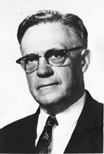Jennifer L Reed
Chemical and Biological Engineering
University of Wisconsin-Madison
Tools for In silico Design of
Microbial Biocatalysts
Abstract
Genome-scale networks of metabolism and regulation can be reconstructed from an organism's genome annotation. Models generated from these reconstructions can be used to integrate and analyze different types of experimental data in order to generate hypotheses about biochemical network structure, interactions between organisms and their environments, and responses to genetic and environmental perturbations. Once models are developed, computational tools can be applied to design microbial strains with enhanced chemical production. We have recently developed new methods for proposing metabolic engineering strategies based on metabolic and regulatory model predictions. These strategies can involve transcription factor and metabolic gene deletions, as well as enzyme over expression. Using these approaches we have identified genetic strategies for improving production of a variety of biochemicals in E. coli including ethanol, isobutanol, succinate, and glutamate.
Bio
Jennie received her B.S. and Ph.D. degrees in Bioengineering: Biotechnology at the University of California, San Diego under the supervision of Bernhard Palsson. Her Ph.D. work focused on the analysis of metabolism in E. coli, and combined both computational and experimental work. After receiving her Ph.D. she stayed at UCSD for two years as a faculty fellow, a University of California program that provides new Ph.D.s with mentored training and experience in the design and conduct of instructional courses and research. As part of this program, she taught classes and conducted research in the Bioengineering department at UCSD. In 2007, Jennie joined the Department of Chemical and Biological Engineering at the University of Wisconsin-Madison, where she is currently an Assistant Professor. Her research interests involve the integration of computational and experimental approaches for studying microbial metabolism and regulation. Her group is currently working on developing new computational tools for metabolic engineering and experimental design applications and applying them in the lab. Jennie is a project leader in the Great Lakes Bioenergy Research Center and was recognized with a NSF Career in 2011.
Please see Dr. Reed's website here.

